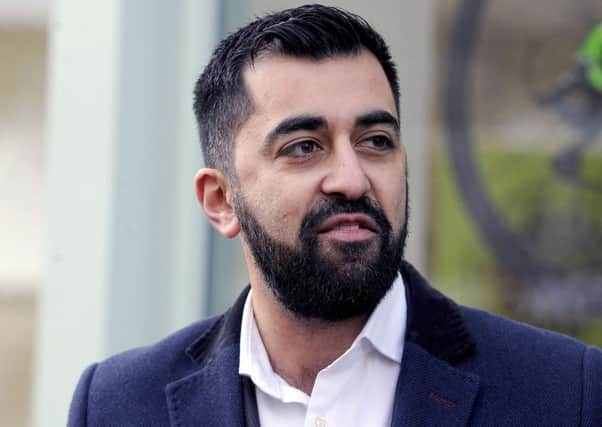Leader comment: Time to be soft on victims, tough on criminals


In the past, the voices of victims of crime could go almost entirely unheard in court. They have no legal representative in criminal cases with prosecution lawyers acting for the Crown, rather than the victim. And, if the accused pleads guilty, they are not usually called to give evidence, while the defence lawyer gives their client’s version of events.
But this lamentable situation has been gradually changing in recent years. Written victim statements – in which people describe how crimes had affected them physically, emotionally and financially – were introduced to courts after successful pilot schemes in the early 2000s.
Advertisement
Hide AdAdvertisement
Hide AdAnd today, in his first interview since becoming Justice Secretary, Humza Yousaf pledges there will soon be “some very clear signals” that the rights of victims within Scotland’s courts are to be improved further. “Where we can strengthen measures for victims and put them even more at the heart of the criminal justice system, I will look to do that,” he tells The Scotsman.
One key area where reform is needed is the parole system and Yousaf says the Scottish Government is “actively looking” for ways to ensure victims and their families are kept informed and “understand why parole or licence might be granted”.
He promises the family of Michelle Stewart, who was murdered in Ayrshire at the age of 17 in 2008, that their views will be “taken on board as part of any temporary release measures”. The Justice Secretary also appears to agree there is a need for greater transparency around parole board decisions.
The murder of father-of-three Craig McClelland in Paisley highlighted another significant problem as his killer had been “unlawfully at large” for nearly six months after breaking the terms of his early release from prison. Again it Seems that Yousaf recognises the need to ensure convicts who have essentially gone on the run are swiftly returned to prison.
The Conservatives have repeatedly raised problems with the delivery of justice in Scotland, claiming that the SNP Government is a “soft touch” on crime. Pointing to the UK Government minister Rory Stewart’s interest in Scottish policies in this area, Yousaf disputes that suggestion, but he also appears to be indicating that he intends to be a “soft touch” only to victims and a “harder touch” towards criminals. And that, if his words become deeds, is to be welcomed.